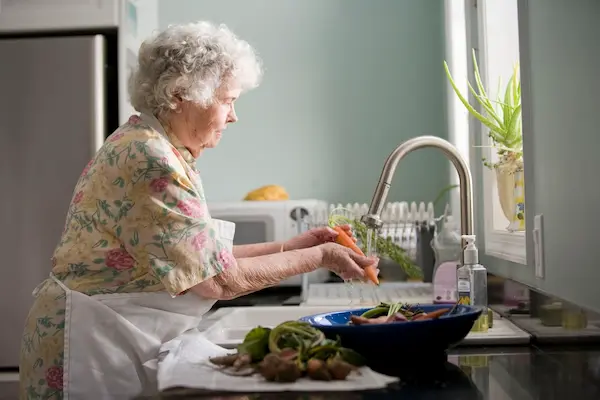In an era where the senior population is increasing rapidly, many adult children and caregivers are faced with the challenges of providing the best care to their elderly loved ones. The journey often comes with difficult decisions, especially when it comes to home healthcare vs community living, technology, and mobility. Below, we will dive into the solutions that are available for each challenge.
Understanding the Pros and Cons of Home Healthcare and Community Living
Deciding between home healthcare and community living for a senior loved one can be a daunting task. Both options have their benefits and drawbacks, and it’s typically a decision that is made after considering the senior’s health status, lifestyle preferences, financial resources, and social needs. Home healthcare allows seniors to remain in their familiar environment and maintain a sense of independence. This independence can prove to be both empowering and comforting for seniors. However, home healthcare typically requires family members or hired caregivers to be readily available to assist with activities of daily living and medical needs.
On the other hand, community living offers built-in access to social activities, meal services, and round-the-clock professional care if needed. Seniors who thrive on social interaction and regularly scheduled activities often find this option more appealing. However, community living usually comes with a higher price tag, and some seniors may resist the loss of privacy and independence associated with this type of living arrangement.
The Role of Technology in Senior Care
Technology continues to transform all aspects of our lives, including how we care for our loved ones in their golden years. For instance, telemedicine is becoming a crucial part of healthcare, allowing seniors to receive professional medical consultations without leaving the comfort of their homes. Wearable devices such as fitness trackers can monitor vitals and activity levels, providing valuable information to caregivers and healthcare professionals.
Home automation systems can help seniors with mobility issues maintain independence at home. These systems can control lighting, temperature, security, and even appliances at the touch of a button. For those worried about the safety of seniors living alone, personal emergency response systems are a worthy investment. These systems allow seniors to call for help in the event of a fall or other health emergency.
Each family will need to weigh pros and cons carefully, keeping in mind the senior’s unique needs and preferences. Lyft for seniors phone number can also prove to be a valuable resource for families who choose home healthcare but require transportation assistance for their elderly loved ones.
Navigating the Challenges of Mobility
As aging progresses, mobility issues become a major concern for many seniors. These issues often lead to a decrease in overall activity, social interaction, and quality of life. Luckily, there are various solutions to ensure that mobility does not become a limiting factor in a senior’s life. Mobility aids such as walkers, stand assist devices, and wheelchairs have evolved significantly over the years, offering ease of use, durability, and even style.
Apart from these aids, home modifications can further improve the quality of life for seniors with mobility issues. Installing grab bars, stairlifts, and non-slip flooring can make a substantial difference. Modifying the home for better accessibility also involves taking care of minor details such as lowering light switches and rearranging furniture for better maneuverability. An experienced electrician in Rowlett TX could provide valuable assistance for these types of home modifications.
Maintaining Emotional Health and Promoting Social Engagement

Emotional health and social engagement play critical roles in the overall well-being of seniors. Regular interaction with family members, participation in social activities, and maintenance of hobbies can significantly improve the quality of life. Research has shown that socialization can reduce the risk of cognitive decline and mental health conditions such as depression and anxiety.
Technology can offer alternative means of social engagement for those who are unable to participate in traditional social activities. Video chat platforms allow seniors to keep in touch with family members and friends, while online platforms provide opportunities to participate in virtual social activities, such as book clubs, fitness classes, or even virtual tours.
The journey into senior living undoubtedly comes with challenges. Overall, the right combination of home healthcare or community living, adaptive technology, addressing mobility issues, and promoting social engagement can help ensure that seniors lead fulfilling lives. It’s an emotional and intricate process, but with patience, compassion, and the right resources, it can be a journey filled with considerable joy and contentment.



